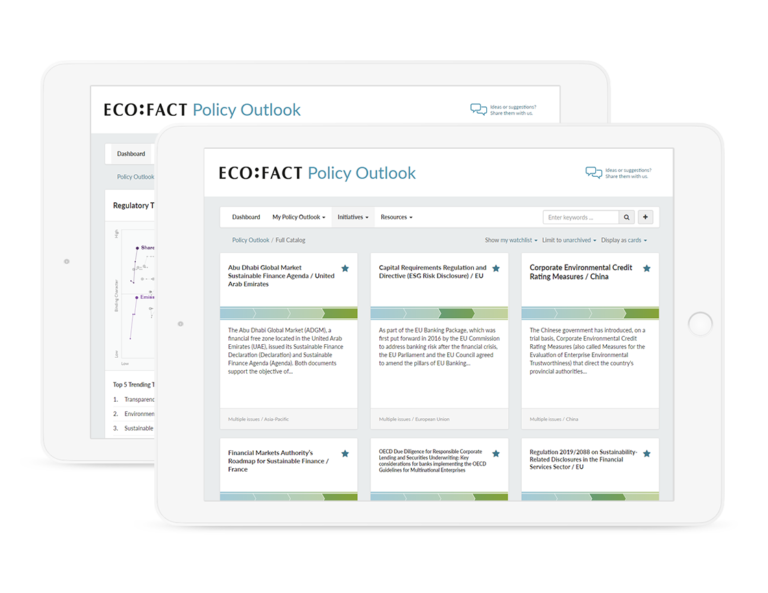Guest Contribution – Sustainable Finance: Challenges and Opportunities for Banks?
The 2030 United Nations Sustainable Development Goals place environmental sustainability challenges, including climate change, as a major concern to the stability of the global economy. Many scientific studies have demonstrated the links between environmental sustainability challenges and economic and financial risks. Most experts agree that the main environmental sustainability risks – physical, transition and liability risks – potentially create negative externalities for the banking sector and broader economy. For most countries, banks play a crucial role in providing credit and investment capital that can be used to mitigate these risks, whilst enabling the economy to grow and become more resilient to sustainability challenges.
Banks are doing more to address these risks by incorporating or mainstreaming sustainability factors into their risk management models and business strategies. This has allowed them to mobilize and reallocate capital away from unsustainable economic activity to more sustainable sectors. In this way, banks can improve their risk management and enhance shareholder value by developing more sustainable financial and investment products and increasing the flows of credit to sustainable sectors of the economy.
In many developed and developing countries, banks are incorporating green credit guidelines and other sustainability measures into their business practices. Two distinct areas of banking practice have emerged: First is the development of environmental and social governance guidelines with a particular focus on risk management in the area of project finance and reallocating credit to renewable energy resources. For example, the Equator Principles were established in 2003 to provide banks with voluntary guidance on incorporating environmental and social risks into their assessments of credit and operational risks in large infrastructure investment projects. As a result, many large global banking institutions have mainstreamed environmental governance principles into project finance. Second, many banks are taking advantage of their unique position as the main provider of short-term credit to structure specialized transactions that mobilize more capital for the green economy. Banks are also mainstreaming certain areas of environmental and social governance practices into overall bank governance strategy. In this way, they are becoming a crucial source of capital for the emerging green economy.
Nevertheless, the banking sector faces steep challenges in steering the economy onto a more sustainable path. As economies adapt to evolving market structures in response to environmental sustainability challenges, banks will have to adjust their risk management and business strategies to address potential asset price volatility and increased credit risk in economic sectors that the market has determined to be environmentally unsustainable. Where such transition risks are material, they may pose systemic risks to the banking sector. These financial risks associated with environmental sustainability challenges have important implications for banks, as they are the largest providers of capital for most economies. How they manage the financial risks associated with the economy’s transition to a more sustainable development path is an important policy concern.
 All posts
All posts Contact
Contact



